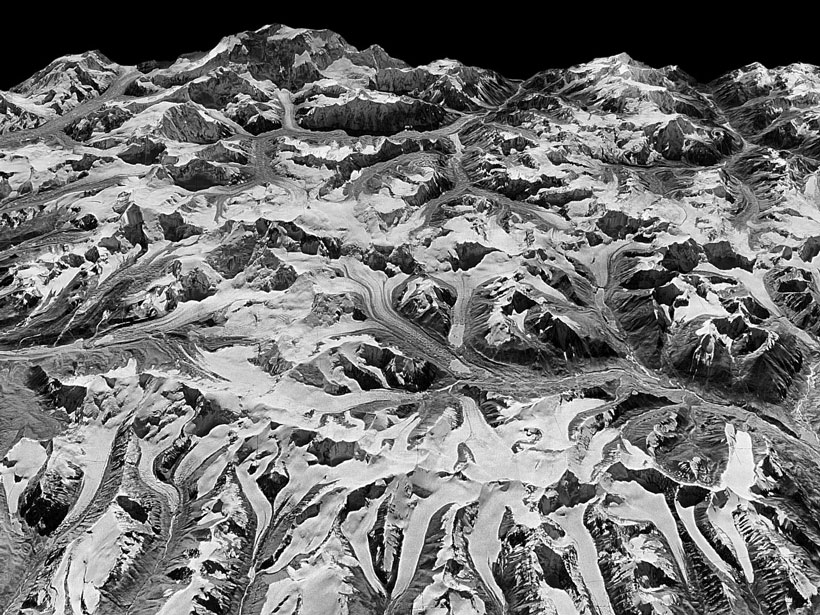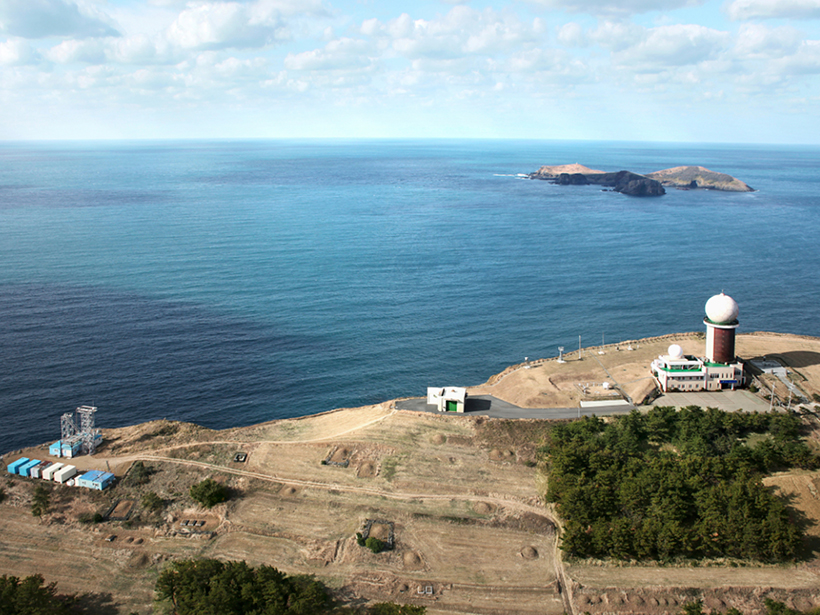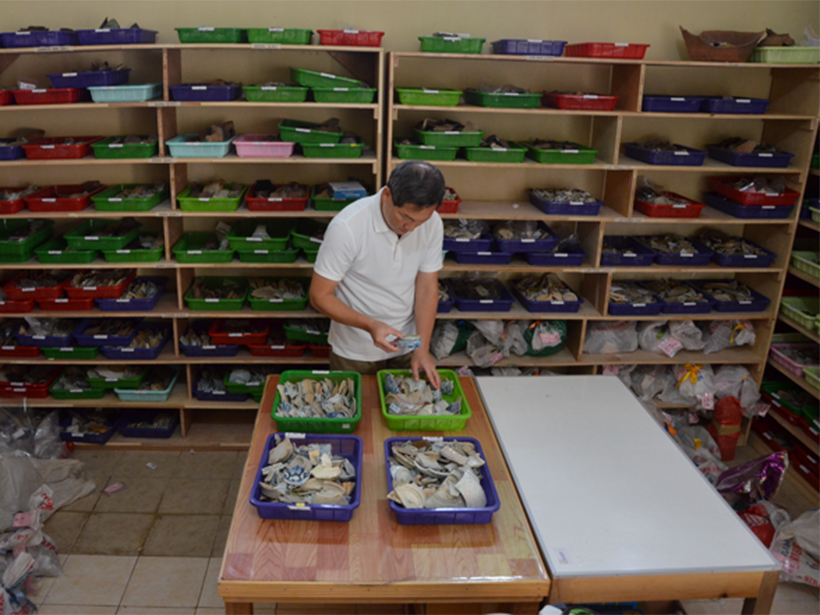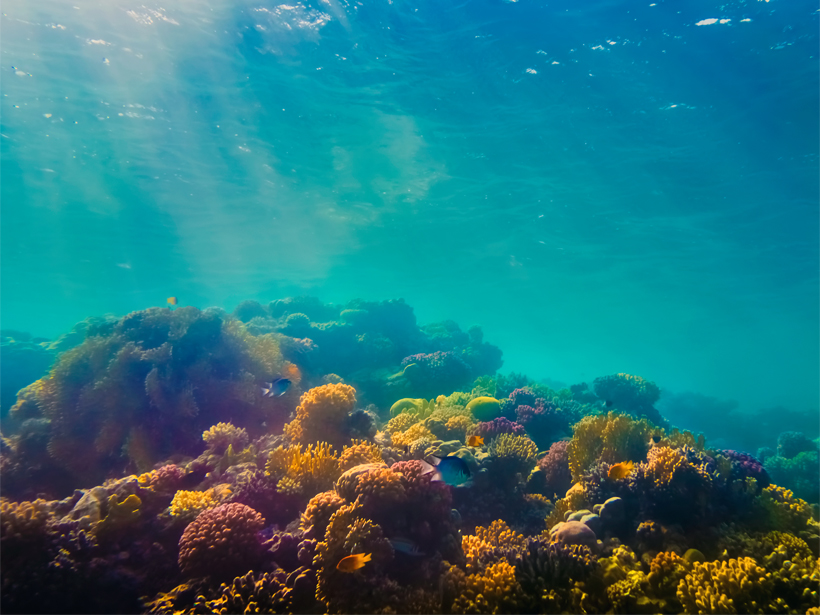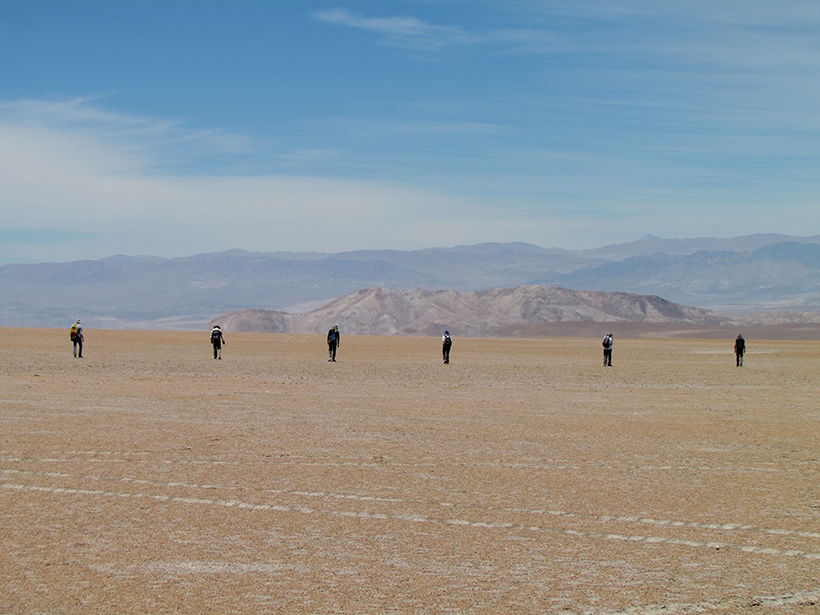Sen. Sheldon Whitehouse says that dark money funding from the fossil fuel industry and others “has polluted our politics.” Dark money and climate denial “are two sides of the same coin,” he says.
News
Spy Satellite Reveals Accelerated Pace of Himalayan Glacier Melt
Images taken covertly in the 1970s have taken on a new purpose in a recent glaciology study.
Banned CFC Emissions Tracked to Eastern China
A new study indicates that better atmospheric monitoring networks are needed to enforce the Montreal Protocol.
Ancient Water Underlies Arid Egypt
A hidden trove of groundwater is left over from the last ice age.
Ceramics Trace a 14th Century Indonesian Tsunami
Archaeological evidence suggests that communities on the northern coast of Sumatra devastated by a tsunami roughly 600 years ago opted to rebuild in the same area, a process repeated in 2004.
Report Examines New Tools to Protect Coral Reefs
Coral reefs face threats including habitat destruction, pollution, and climate change. A novel set of interventions could help them persist in rapidly degrading environmental conditions.
Oldest Meteorite Collection Found in World’s Oldest Desert
Rare 2-million-year record reveals the meteorite flux rate.
Many Water Cycle Diagrams Promote Misconceptions
Most representations of the water cycle are flawed, researchers found by analyzing over 450 diagrams: The effects of humans, seasonal changes, and different biomes are often neglected.
Space Is Polluted by Junk…and It’s Getting Worse
The major shift from state to commercial space programs, as well as a sharp rise in the number of upcoming launches, raises concerns about our efforts to manage the problem.
Waxman Maintains Hope for Climate Change Legislation
Former congressman Henry Waxman, who led efforts on sweeping environmental initiatives, is realistic about the obstacles presented by congressional Republicans and the Trump administration.


